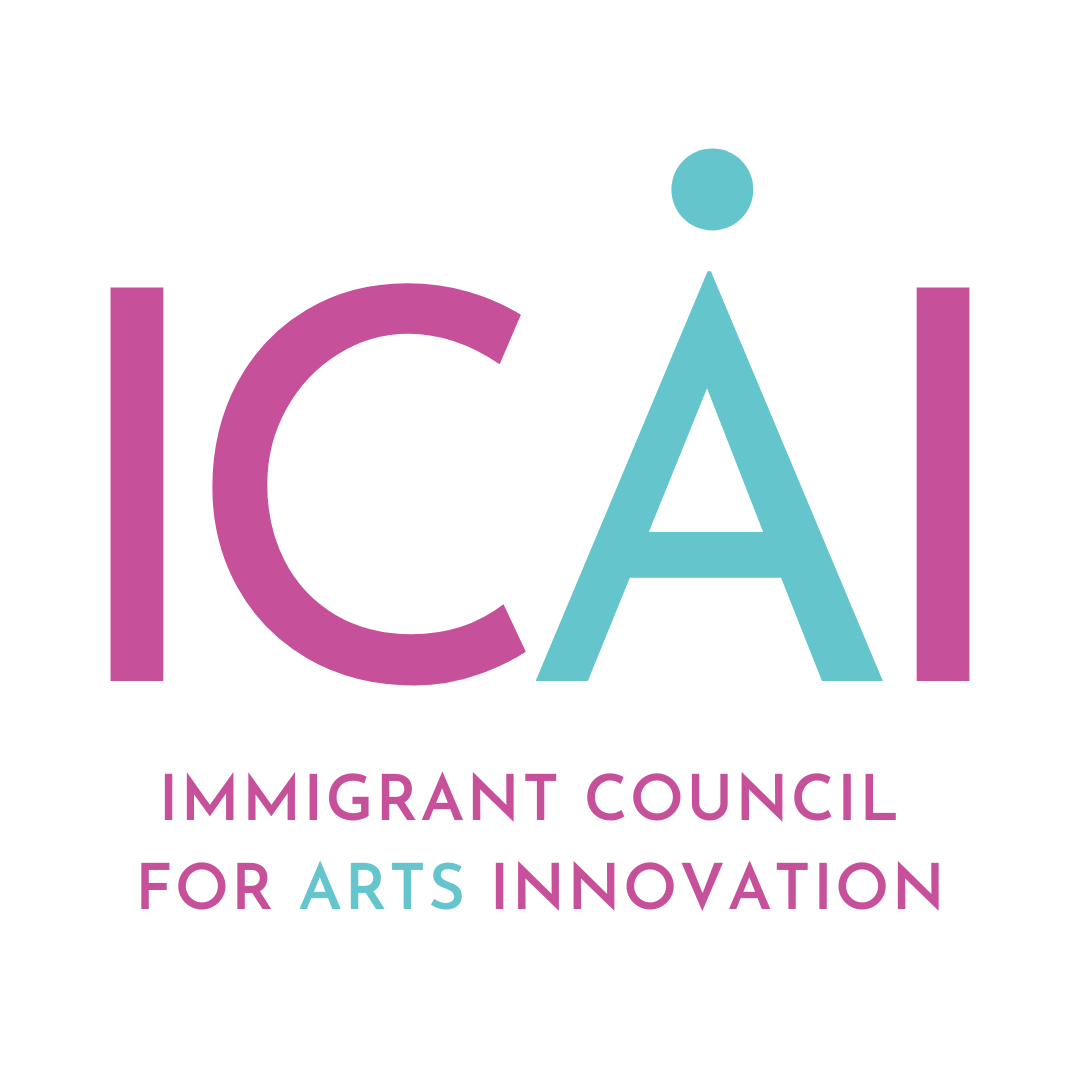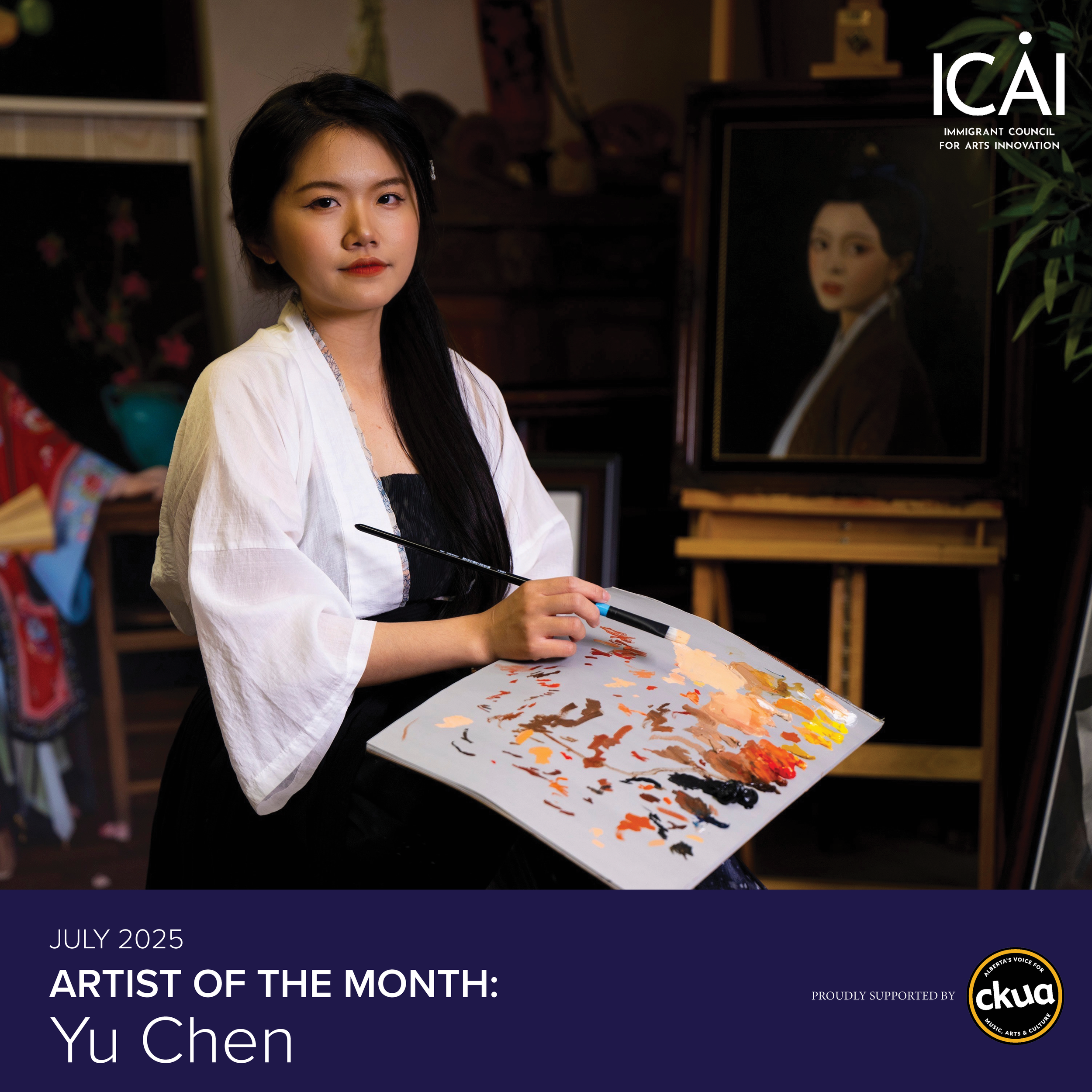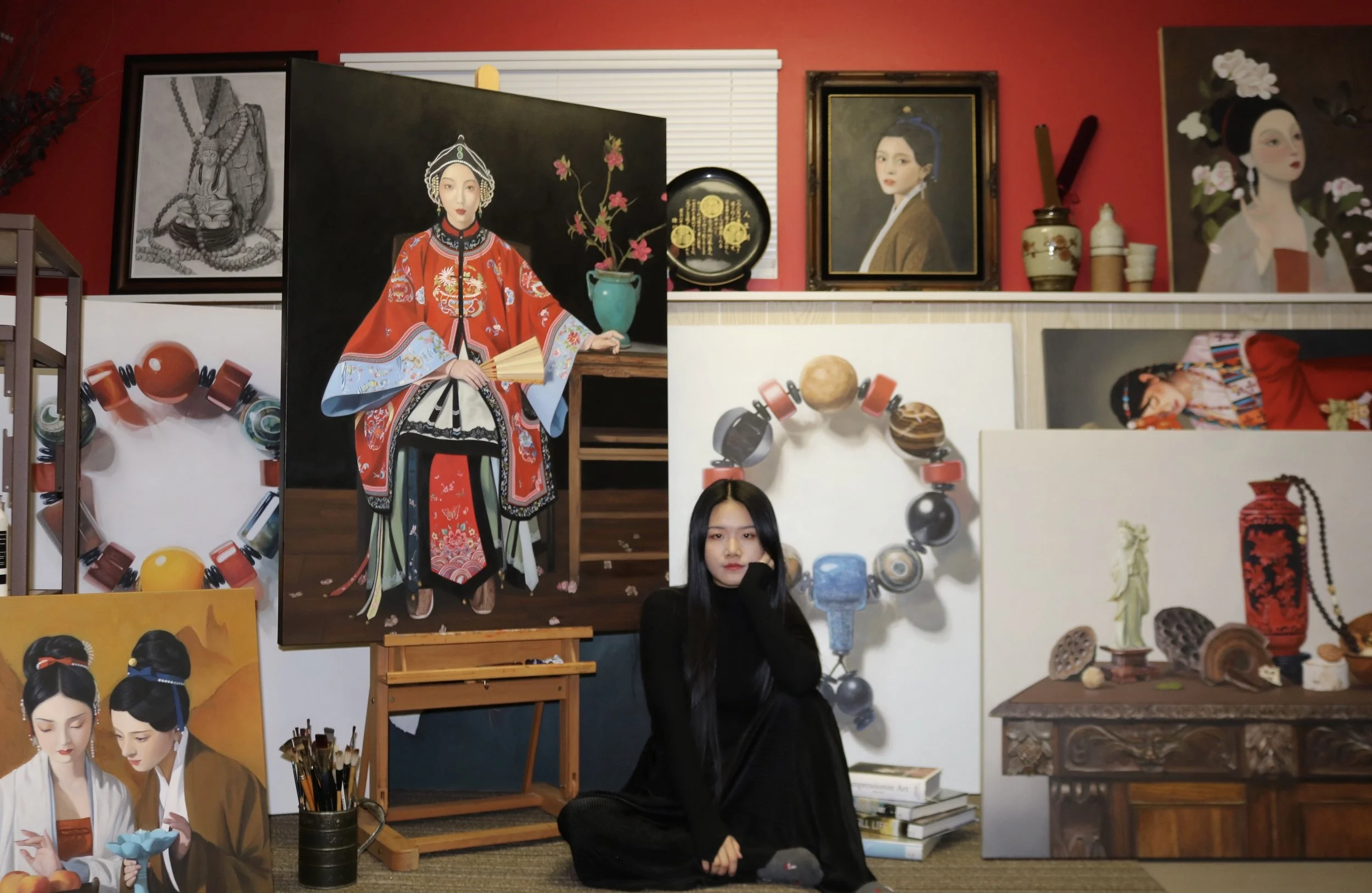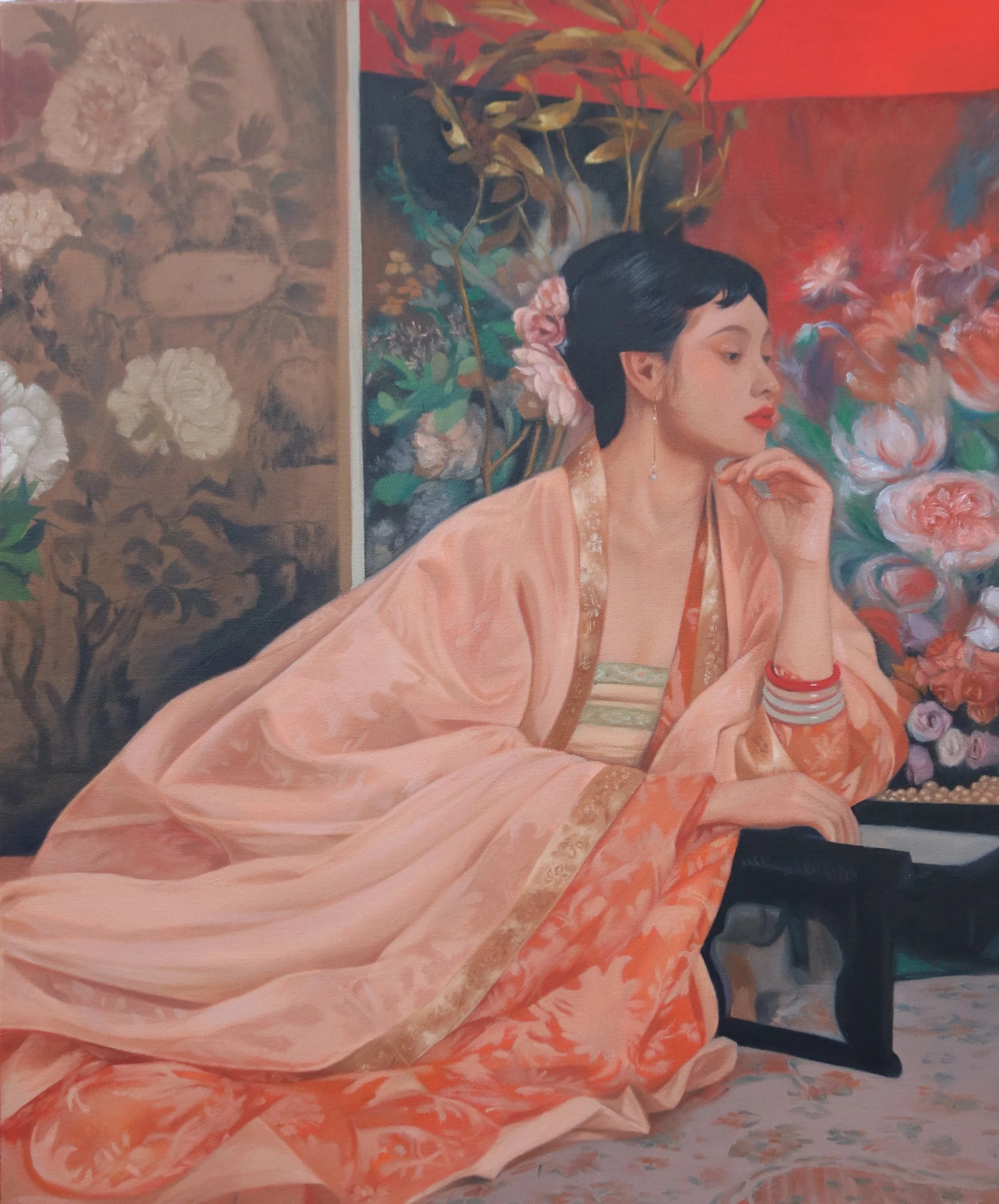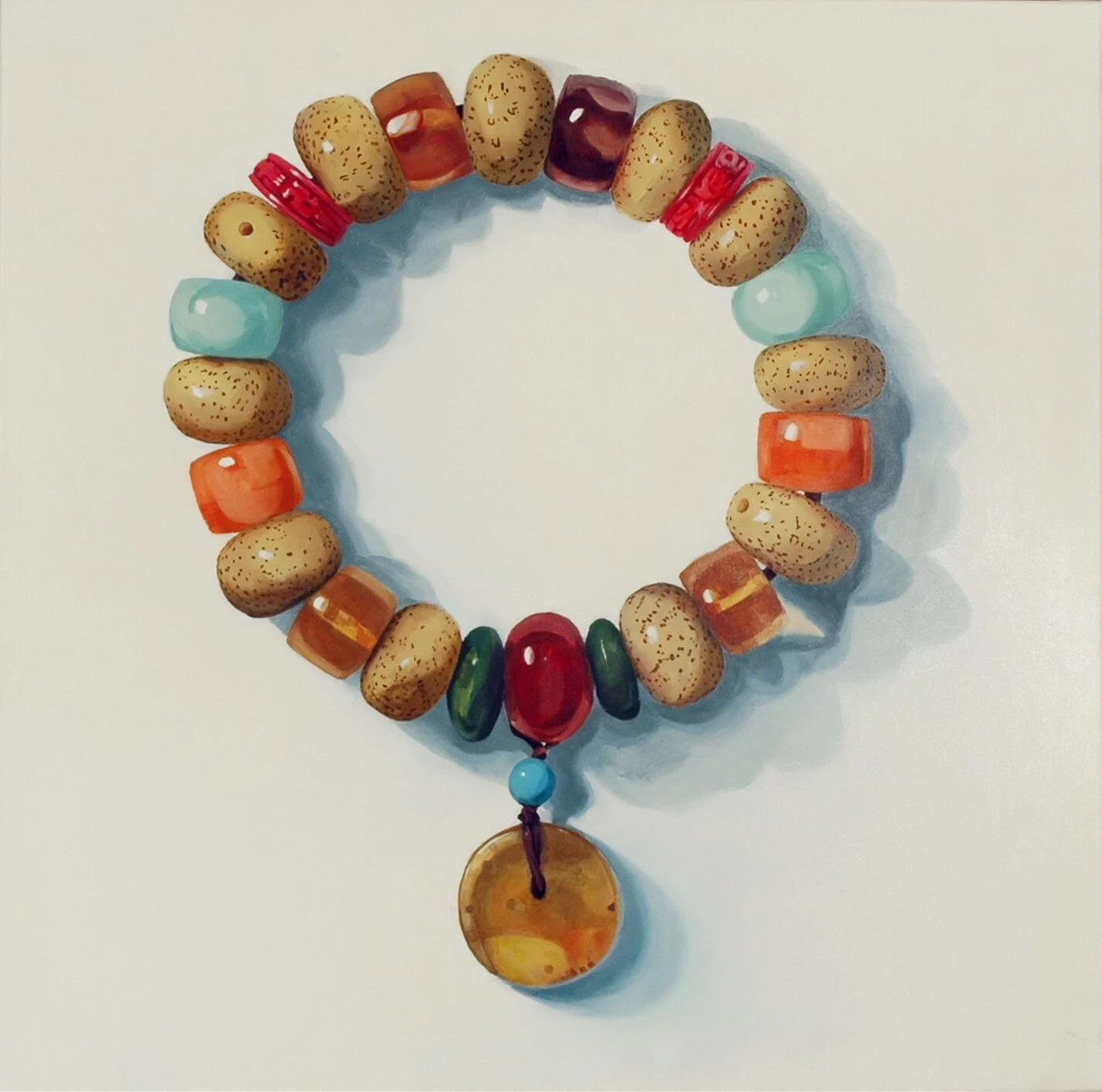Artist of the Month: July 2025
Visual Artist
Based in Calgary, Alberta
Artist Bio
Yu Chen is a Chinese artist based in Calgary, working primarily in oil painting. She holds a B.A. from Western Oregon University and also studied at Guangxi Arts Institute. Her artistic journey began with a foundation in Western painting techniques, which she later combined with a deepening exploration of her Eastern cultural roots after moving to Canada in 2019. Drawing from her Han heritage, Chen’s work focuses on themes of identity, memory, and tradition. She often centers her practice around Hanfu, the traditional clothing of the Han people, using it as a visual and symbolic language to reflect cultural continuity and transformation. Alongside oil painting, she integrates media such as photography, traditional makeup, and installation to create immersive experiences. Through her art, Chen hopes to share Chinese culture in a way that is meaningful and easy for people from different backgrounds to understand.
“My goal is to create something meaningful and inclusive and to keep building a space where people can feel seen and connected”
How did your journey as an artist begin, and what impact has living in different countries had on the themes in your work?
I’ve loved art since I was a little kid—it just came naturally to me. I’ve been drawing and painting for almost 25 years now, and it’s something I’ve never really stopped doing. I studied art seriously from a young age, starting at Hainan Art Institution for high school in China, then earning my degrees in Fine Arts from Guangxi Arts Institute and Western Oregon University
So when someone says I was born to be an artist, I think it’s actually kind of true—art has always been a part of me. And after I moved to Canada, my creative path expanded. I became not just an artist, but also a cultural promoter, using my art to connect people and share stories from different cultures.
My view of art keeps changing as I live in different countries. But living abroad also makes me think more deeply about who I am and where I belong. That’s why a lot of my recent work focuses on identity. When you’re far from home, you go through experiences that are hard to explain—things that make you see yourself differently. I think that feeling of distance and reflection has really pushed me to create more personal and honest work.
Can you walk us through what your Hanfu life drawing session looks like, and what you hope participants take away from it?
In Hanfu life drawing session, the model wears traditional Han Chinese clothing, and the background is decorated with elements that reflect the culture. This immersive setup allows participants to draw while experiencing the beauty and tradition of Han Chinese attire. I hope participants walk away with a deeper appreciation for Chinese culture and its symbolism. It’s not just about the art, it’s about understanding the history and meaning behind the clothing, fostering respect for traditions, and connecting through shared creativity.
You mentioned struggling with self-promotion—what have you learned about building your artistic presence in Alberta?
Yes, self-promotion was difficult at the beginning. But over time, I’ve learned how to promote myself better. Applying for art programs and joining community events has helped a lot. Talking to other artists in person also makes a big difference—many artists and cultural promoters are very open, encouraging, and willing to share. Through those conversations, I’ve learned how to build networks and connect with both artists and the broader community. I’m still learning, but I’ve realized that showing up and connecting with people offline is just as important as sharing work online.
How did participating in ICAI’s mentorship program and working with a mentor like Claudia change the way you present your work?
Working with Claudia really helped me a lot. She encouraged me to think more about how I talk about my work—not just what I create, but the message behind it. She gave me feedback on my resume and portfolio, helped me organize my ideas, and pushed me to be more confident when sharing my artwork with others. She also taught me the full process of applying for artist grants. Now that I’ve learned how it works, I realize there are so many opportunities out there. I feel more confident and more supported, and I understand much better how artists can present and promote themselves.
As someone who’s navigated multiple cultures and artistic spaces, what advice would you give to other newcomer artists trying to find their voice?
Don’t be shy, don’t be afraid, and don’t wait around for opportunity. Your story and your background are valuable, even if they feel different from what others are doing. Sometimes it’s easy to feel small or discouraged when you are a newcomer, but that kind of thinking can stop you from trying at all.
I would say: Push yourself out of your comfort zone, try to connect with your local art community, show up to events, and talk to people—that’s how I started after the ICAI mentorship Program. It’s okay to feel lost and scared at first, but keep making work that feels honest to you. Your voice will grow naturally as you keep going.
Follow Yu Chen:
